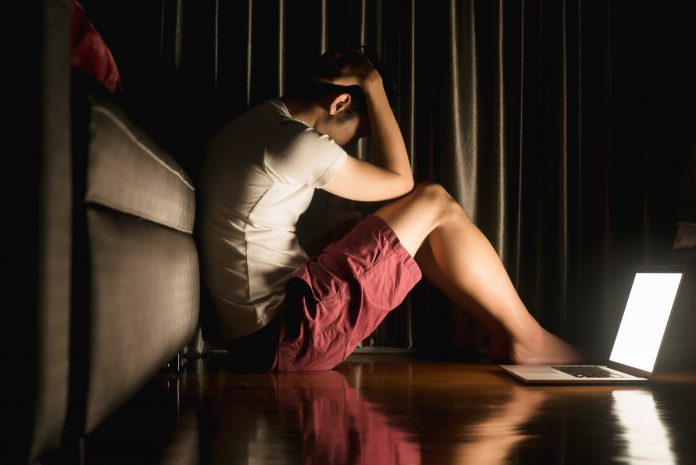As Dispatches reveals 68% of 16 to 30-year-olds are currently experiencing a mental health problem, Smart TMS dissects the mental health of millennials in this report
Depression has long been endemic in today’s society and is the predominant mental health condition worldwide. However, it is becoming increasingly clear that young people are facing the greatest risk of suffering from symptoms of depression and anxiety.
This week, Dispatches revealed that 68% of 16 to 30-year-olds think they have had or are currently experiencing a mental health problem. Today, Smart TMS unveils research – carried out across a survey of 2000 Brits – which shows that millions of millennials are unknowingly experiencing symptoms of anxiety and depression which they have normalised.
The results:
- 40% of millennials spend more time alone and less time with friends or family than they used to
- 37% of Brits spend more time alone and less time with friends or family than they used to
- 38% of millennials no longer enjoy work as much as they used to
- 32% of Brits no longer enjoy work as much as they used to
- 37% of millennials are less confident than they once were
- A third of Brits are less confident than they once were
- 32% of millennials find themselves cancelling plans more often so they don’t have to interact with other people
- A quarter of Brits find themselves cancelling plans more often so they don’t have to interact with other people
- 36% of millennials find themselves feeling more anxious in social situations than they used to
- 30% of Brits find themselves feeling more anxious in social situations than they used to
- 25% of millennials do not enjoy spending time with their family as much as they used to
- 16% of Brits do not enjoy spending time with their family as much as they used to
- 27% of millennials have a hobby which used to bring them joy, but no longer does
- 20% of Brits have a hobby which used to bring them joy, but no longer does
- 27% of millennials say that spending time with their friends does not bring them as much joy as it used to
- A fifth of Brits say that spending time with their friends does not bring them as much joy as it used to
- 29% of millennials find basic functions such as sleeping and showering more difficult than they used to
- 24% of Brits find basic functions such as sleeping and showering more difficult than they used to
- 28% of millennials find themselves sleeping more than they need to
- A fifth of millennials find themselves sleeping more than they need to
- 30% of millennials care less about their physical appearance than they used to
- 30% of Brits care less about their physical appearance than they used to
- 27% of millennials find that casual drinking turns into binge drinking more often than it used to
- 17% of Brits find that casual drinking turns into binge drinking more often than it used to
Why is millennial depression different to that of the wider public?
The research indicates that many millennials in the UK are struggling more with unidentified symptoms of anxiety and depression. Many social factors have been shown to have a negative impact on young people’s mental health in Britain.
According to Ofcom, 16-24-year-olds spend 34.3 hours a week on the internet. This may sound harmless but can often lead to a dangerous ‘compare and despair’ habit – a term coined to mean constantly contrasting your life to others. With the rise of social media comes the pressure to always be and look your best. Excessive social media use has been shown to have negative effect on mental health.
A study of over 5000 subjects, published in the American Journal of Epidemiology, revealed that regular use of Facebook had a negative impact on an individual’s wellbeing. Furthermore, the Millennium Cohort Study found that the higher depression rate in girls compared to boys is linked to the greater time girls spend on social media.
Not only are depression and anxiety prevalent amongst young adults and teenagers, but there is a certain stigma when it comes to getting diagnosed and treated. Previous research from Smart TMS found that 37% of millennials have experienced symptoms of what they think is undiagnosed depression for many years and 27% of millennials have left a long-term mental health issue untreated over many years in order to avoid prescription drugs.
Gerard Barnes, CEO of Smart TMS, offers the following commentary:
“The research indicates that many Brits, but especially millennials, simply are not getting the same joy from previously loved hobbies, friends and even family. Alongside this lack of enjoyment, many people are reporting an increase in a desire to be away from other people and social situations. These are clear signs of depression and anxiety, which are often characterised by low self-esteem, an increase in substance abuse and a loss of the ability to carry out simple functions without overthinking.
At Smart TMS, we recognise that many millennials may be unaware that what they are feeling constitutes as depression and anxiety. As a result they are not aware of the need to look after themselves and may not be seeking effective treatment for their conditions. More needs to be done to help people recognise symptoms of mental health conditions within their own behaviours and respond accordingly.”











